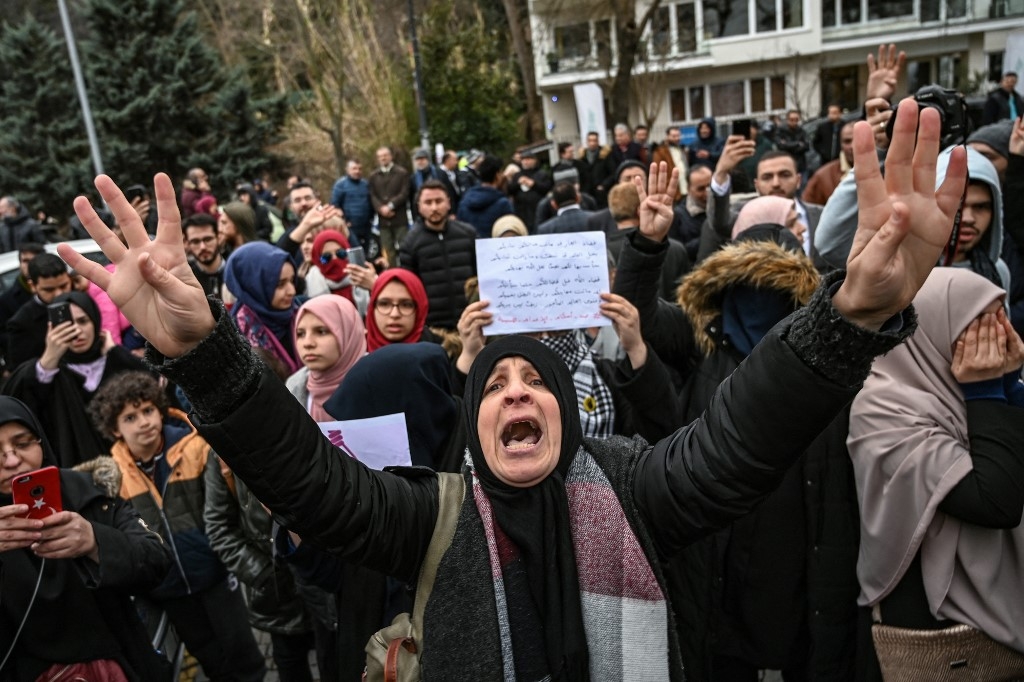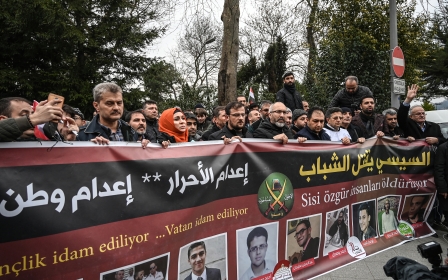Egypt issued highest number of death sentences worldwide in 2021

Egypt sentenced at least 356 people to death in 2021, becoming the world’s top issuer of death sentences, Amnesty International said in its annual report.
The British rights group documented 520 executions in seven countries in the Middle East and North Africa, out of a total 579 recorded globally, with an increase of 19 percent compared to 2020.
China is believed to have carried out the most known executions in the world last year, followed by Iran, Egypt, Saudi Arabia and Syria.
The data does not include executions carried out in China, believed to have carried out hundreds, or from North Korea and Vietnam, as these countries do not release data on the death penalty, Amnesty said.
The death sentences in the Middle East were mostly issued following proceedings that lacked due process, Amnesty said.
New MEE newsletter: Jerusalem Dispatch
Sign up to get the latest insights and analysis on Israel-Palestine, alongside Turkey Unpacked and other MEE newsletters
Iran executed the highest number of women globally (14) followed by Egypt (8) Saudi Arabia (1) and the US (1).
Iran executed at least 314 people (up from at least 246 in 2020), its highest number of executions since 2017, the report added. In Saudi Arabia, recorded executions increased from 27 to 65.
By the end of 2021, more than two thirds of the world’s countries had abolished the death penalty in law or practice, Amnesty said.
Iran's execution rate is followed by Egypt (at least 83) and Saudi Arabia (65) – accounting for 80 percent of executions worldwide.
Iran used the death penalty disproportionately against minorities, for charges such as “enmity against God” and “as a tool of political repression,” Amnesty said.
The death penalty in Egypt continued to be imposed on the basis of testimonies extracted after torture, the report said.
Middle East Eye delivers independent and unrivalled coverage and analysis of the Middle East, North Africa and beyond. To learn more about republishing this content and the associated fees, please fill out this form. More about MEE can be found here.




